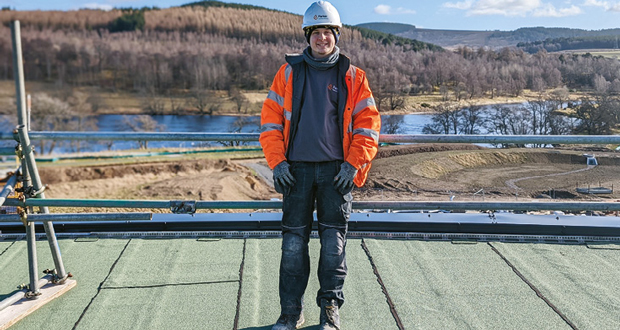 In an industry that faces a severe skills gap, educating young people on the exciting and varied opportunities that a career in engineering can offer is vital says Robert Molloy, Managing Director Scotland, Parker Technical Services
In an industry that faces a severe skills gap, educating young people on the exciting and varied opportunities that a career in engineering can offer is vital says Robert Molloy, Managing Director Scotland, Parker Technical Services
It’s no secret that our sector is facing a skills crisis. The growth in automation and digitalisation, and the drive for net zero means that skilled engineers are in greater demand. Figures from the ECITB also suggest that over a third (38 per cent) of the ECI (Engineering Construction Industry) workforce is over 50 years old and only 14 per cent under the age of 29. These industry drivers, combined with a lack of the right skills and an ageing workforce, are creating the ‘perfect storm’ resulting in a shortfall of over 173,000 workers in the STEM sector, costing the economy £1.5 billion per annum.
Edwin James Group recognises that it is our people that make us successful. They are the face of our company and on the front-line delivering services to clients in their process, digital, and built environments. To meet our growth ambitions, we need to recruit and retain the right team, but acquiring talent is challenging, and competition is fierce.
In this environment, learning and development are more critical than ever. The right approach is crucial to meeting recruitment targets, retraining and upskilling staff, and reducing churn.
APPRENTICE TO BOARDROOM
The EJ Academy was launched in 2021 to tackle the skills gap and underpin our growth plans. It supports STEM careers from apprentice to boardroom and supports every part of our workforce strategy, from recruiting, selecting and onboarding new employees to engaging, retraining and supporting the development of our existing team.
It is central to our commitment to working with colleagues at every level to help them learn new skills and competencies that support their job and career aspirations. The programme offers a wide range of opportunities, from technical training to broaden the skills base of site operatives through to leadership, management and development training for managers and support staff. It also supports apprenticeships for those just starting and those making a change later in their career.
In the last year, we completed over 57,000 plus hours of training, and the programme has been expanded. We now have three physical training centres that support hands-on learning. Two of the centres are fully kitted out with classrooms, training rooms, creative spaces, e-learning stations and electrical training booths that support apprentices’ training and assessment before taking their final electrical qualifications, which we know supports pass rates.
Our newest training centre is a digital academy that focuses on the skills needed to ensure our teams can help customers to realise the benefits of digitalisation – enhancing workflows, increasing outputs and
reducing costs. It houses the latest software and infrastructure to let colleagues and customers get hands-on and operate test environments before going onsite.
LEADERS OF THE FUTURE
Thirty years ago, I started my career as an electrical apprentice at EJ Stiell, so I understand the importance of apprenticeships and getting young people into the industry. And I’m not alone; many of our senior leaders have made the journey from apprentice to director. We’ve experienced it first hand and understand the importance of lifelong learning and the need to develop talent from within.
Apprentices are vital to the future success of our business. They are the future leaders; without them, we couldn’t fulfil our growth ambitions. So, in 2021, we launched a programme to grow our apprenticeship scheme from 10 to 15 per cent of the total workforce over two years. I’m proud to say that following the expansion of the programme and the introduction of management apprenticeships, the figure now stands at 16 per cent of the total Edwin James Group workforce. In Scotland, the figure is even higher at 20 per cent.
It’s also important to recognise that whilst the bulk of our apprentices are in the trades, we also offer apprenticeships across the business. Vital functions like finance, HR, admin and marketing support the group and keep the businesses running smoothly; these key roles shouldn’t be forgotten.
As an industry, we must work together to tackle the skills gap. Collectively, we need to find creative ways to engage with both young and older people to encourage them into our industry and persuade them to stay.
One project that we’re involved with aims to educate young people on career options and the different pathways available, be that a modern apprenticeship, further, or higher education. Through the project we’ve engaged with local schools to talk about careers in the built environment, the different roles available, covering trades and support functions and the many different routes into work. Following up on this, we’re also planning to introduce Foundation Level apprenticeships for 15 – 18-year-olds and to increase the number of graduate apprenticeships across the business.
The skills gap is a problem that requires a coordinated effort from stakeholders. By working together to develop new training programmes, promote diversity and support our teams, we can ensure that the next generation of engineers has the skills and knowledge needed to succeed.





